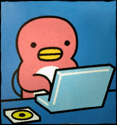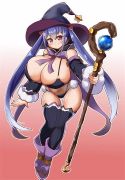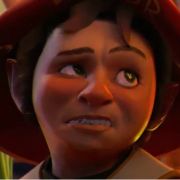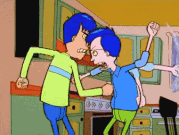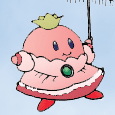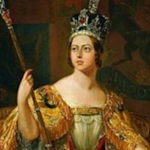|
Agreed. Le Guin is amazing. Have read it and looking for more.
|
|
|
|

|
| # ? May 24, 2024 21:19 |
|
a friendly penguin posted:Hey, thanks for posting this! It also links to an article recommending books with gender-nonconforming characters which is what I'm here to ask about. This was a good start, but these articles are from 2018 and I'm hoping there's been a lot of new stuff since then. The Monk & Robot books by Becky Chambers are about a nonbinary human who goes by they/them. The queer YA scifi graphic novel On a Sunbeam by Tillie Walden has a nonbinary character who is handled well.
|
|
|
|
a friendly penguin posted:Agreed. Le Guin is amazing. Have read it and looking for more. Lathe of Heaven
|
|
|
|
Howdy, friends. I figure I should introduce myself. I've been writing everyday for going on roughly three plus years, and produced somewhere in the neighborhood of five novels. As y'all from the self-publishing thread know, I've been struggling with the process of what the hell to do once you're in the habit of reliably cranking out fiction. Primarily, how the hell should a person best go about publishing? I'm going to have some questions about that, but I've got a more pressing matter to attend to first. My most recent work is 177k words, and definitely getting split into two novels. Maybe even three. I've finished a second draft, and had it read by precisely one person between drafts. But after speaking with the self-publishing thread, I've realized a considerable folly on my part. I never used chapters, only page breaks, thanks to my own personal preferences when reading. So here's my question for the thread. Do you prefer a bunch of chapters a couple pages long? Or longer chapters with multiple page/scene breaks? I'm staring at this loving document, having a hard time knowing what would be best. It's big enough that I'd like to approach putting in chapters intelligently, because it will be time consuming. Notes - The genre would be what I call "Lower Case H" horror. It's not a scare-a-minute slasher book, and probably closer in thematic tone to Stephen King than Clive Barker. Here is a very, very, very preliminary blurb that is not finished. The sadistic butchering of six goats left their severed heads staked to an old oak. But their terrified bleats awakened an ancient force, plunging the countryside into terror. Deep in the rolling hills of Tennessee, two Union veterans of the Civil War built a life outside the town of Lawrenceboro. Childhood friends Francis Meet and Freddy Monk were raised amongst the thick woods outside the Meet family homestead. Without wives or children, the pair quietly tend to the land while bandaging the wounds left by war. Most neighbors sent sons to fight for the Confederacy, who returned bitter and beaten men. Defeat channeled their simmering hatred into the burgeoning Ku Klux Klan, intent on maintaining the southern order of white supremacy through hooded nighttime raids and brutal lynchings. The presence of two Union veterans prospering was an affront to the worst citizens of Lawrenceboro. As rumors swirled around their supposedly unnatural lifestyle, the Klan took action. Their goats were the first casualties, sawn apart by dull Bowie knives and left to rot. As the pair of homesteaders prepare to answer with lead, the mutilation awakens an ancient entity soaked deep within the soil. An infestation older than Cain and Abel takes root, choking the town with vines soaked in blood.
|
|
|
|
Captain Log posted:But after speaking with the self-publishing thread, I've realized a considerable folly on my part. There's no rules which say you have to use traditional chapters. I've read more recently pushed books which mix traditional length chapters with very short ones, sometimes only one or two pages long. Some authors don't use chapters at all (such as was the case for most of Terry Pratchett's books). If you're self-publishing, you can do what you want. If a professional publisher or agent gets interested and demands you use chapters, then it's probably fine to either use lots of small chapters (often used for a single scene) or longer ones which can be one or multiple scenes. Or you can mix and match. Stuporstar posted:I found this video series enlightened me on how my chaotic writing method is actually common enough to get labeled a writer type: https://m.youtube.com/watch?v=eryQEZImm6Y It’s nice to know I’m not alone in this and it helped me figure out how to work with my divergent brain rather than beating my head against it trying to “Shut Up and Just Write” I watched that. (I guess I fall under the category of Methodological Plotter.) From links mentioned in the video description, I found an article which actually broke the plot outline into 24 stages. What I found helpful from that article was NOT specifically the 24-chapter outline, but the summaries which made me think about what I wanted to tell. quote:Start the first chapter in the middle of the action; a big important day that the protagonist has been waiting for. Not characters sitting around and thinking about lore or history. Give them small, simple tasks to complete that show their world and the people in it. Don’t share information, share action, and be descriptive. A good protagonist is busy and has things to do. The part about giving the protagonist a simple task to do, and the better future they’ve been dreaming of for years falling apart sounded reasonable. I already had an idea for such a simple task from earlier notes, so I went back a little farther and wrote that chapter, and put the thing which made Charlotte really angry at her Father (and which also put an end to the 'dream') as the chapter's end. As a bonus, that chapter speaks well to the theme of the overall work. It's not perfect of course, I still need more detail, and the middle scene is more about a character introduction, and has no conflict, so it will need a rework, but it's enough to move on. I can always come back and tweak it if I get more solid ideas. (The chapter is 4300 words in three scenes, the shortest one is the middle one. Not only does each scene have a beginning and end, but the three scenes themselves also comprise a coherent unit which fits in one chapter ("acquiring" material for a report, working on the report, presenting the report).) Stabbey_the_Clown fucked around with this message at 16:12 on Oct 29, 2023 |
|
|
|
a friendly penguin posted:Hey, thanks for posting this! It also links to an article recommending books with gender-nonconforming characters which is what I'm here to ask about. This was a good start, but these articles are from 2018 and I'm hoping there's been a lot of new stuff since then. Phoenix Extravagant by Yoon Ha Lee features a nonbinary protagonist in a story that uses magic as a tool in colonialism, and also giant robot dragons. It's a phenomenal book in terms of ideas and magic, and while I really liked the ending, a lot of people I know got pretty annoyed by it. Regardless, it's great. She Who Became The Sun by Shelley Parker-Chan has a genderqueer protagonist that, eugh, the book is really, really good, but also it wades into some murky waters that can, potentially, be read in a way that supports some anti-transmasc arguments. I don't think the author was saying women transition to men in order to gain privilege as that's not a theme of the book, nor does it seem to be the author's viewpoint, but if you're either sensitive to reading into that or you're a dickhead looking for "evidence" to be transphobic then the text can easily be read that way. I have yet to read the sequel, but I really liked it overall.
|
|
|
|
a friendly penguin posted:Hey, thanks for posting this! It also links to an article recommending books with gender-nonconforming characters which is what I'm here to ask about. This was a good start, but these articles are from 2018 and I'm hoping there's been a lot of new stuff since then. The protagonist of the Singing Hills Cycle novella series is non-binary. Each one in standalone and I enjoyed every one of them so far https://www.amazon.com/Empress-Salt-Fortune-Nghi-Vo/dp/125075030X/
|
|
|
|
Wungus posted:Just in terms of genre fiction, which is what I have been reading a lot lately, here's two with explicitly not cis or binary trans leads: Stuporstar posted:The protagonist of the Singing Hills Cycle novella series is non-binary. Each one in standalone and I enjoyed every one of them so far https://www.amazon.com/Empress-Salt-Fortune-Nghi-Vo/dp/125075030X/ Thank you, both. These are on my list! (Already read SWBTS and enjoyed it) And it's good to know that The Singing Hills Cycle are each standalone. Sometimes it takes me a while to get to the next one. Thanks to everyone who has contributed so far. For anyone else who was interested, here's what I've been finding: https://writingtheother.com/ - Resources, workshops and articles on writing all sorts of characters different from yourself https://www.tor.com/features/series/post-binary-gender-in-sf/ - A blog post series exploring works other than The Left Hand of Darkness that go beyond gender binary. (from 2014 though) https://www.writingdiversely.com/ - Blog posts and resources for writers wishing to write more diverse characters. Also a good place to find sensitivity readers. I'll keep looking! a friendly penguin fucked around with this message at 12:01 on Oct 30, 2023 |
|
|
|
Stuporstar posted:The protagonist of the Singing Hills Cycle novella series is non-binary. Each one in standalone and I enjoyed every one of them so far https://www.amazon.com/Empress-Salt-Fortune-Nghi-Vo/dp/125075030X/ Thanks! Just picked this up with all of the Kindle credit I had lying around. My WIP has a non-human third-gender character that uses they/them pronouns so I'd be interested in reading examples
|
|
|
|
Gonna throw in a rec for Ann Leckie’s Translation State which has a couple NB POV characters and a bunch more in the background.
|
|
|
|
Captain Log posted:Howdy, friends. I like to think of chapter breaks as a tool in your toolbox just like every other part of the text. They have a specific effect on the reader that is subtly different from page breaks, so they can be used to different effect. Chapter breaks often mark a moment of dramatic tension or transition. In my current novel I usually have one POV character per chapter, but in a few chapters I have multiple POV characters separated by page breaks as a way to indicate they are still within the same scene or situation. I don't think the overall length of the chapters matters that much as long as it stays within a reasonable range--it's going to be weird if you have a 7,000-word chapter followed by a couple of <1,000 words each. Although even that can be done well if it's for deliberate effect (Faulkner famously wrote a one-sentence chapter in As I Lay Dying, and I'm sure other writers have tried similar).
|
|
|
|
a friendly penguin posted:I'll keep looking! The Tensorate novellas by Neon Yang had an interesting take where children are not gendered by default and are provided with hormone blockers until they decide to confirm themselves as a particular gender (if they choose to do so), at which point they then get that course of supplements provided to them to help them transition to their chosen gender. The Black Tides of Heaven is the one I'd suggest you read because it's in focus for that novella. Captain Log posted:But after speaking with the self-publishing thread, I've realized a considerable folly on my part. Oh sorry, that was not the intent if you came away from the self-pub thread with that impression; I thought you were just doing a straw poll out of curiosity, not asking whether you should change your manuscript to accommodate chapters! Leng posted:Re: chapters - I wouldn't stress about this. Nobody's going to decide whether or not to read your book or not based on if it has chapters or not. I'm currently reading The Spear Cuts Through Water which doesn't have chapters. It's great. leper khan posted:My wife buys books that have short chapters because they make her feel like she reads faster. Icon-Cat posted:Well, you and I wouldn't mind either way, but I guess it's time for me to share a review of one of my stories (about 7,000 words, with "a short story" right there on the cover and in the text and whatnot) Those two data points aside, I stand by my assertion that chapters are not a make-or-break deal for most folks deciding whether or not to buy your book. It is okay to use chapters. It is okay to just number them instead of naming them. It is also okay to name them but not number them. And it is totally fine to not use chapters at all. As with all things writing, something may or may not be okay, because whether it is or it isn't depends on what your intention is for writing it that way and whether the effect achieves what you intended. Chapters are a break in the story, but a bigger break in the story than just a section/scene break. You'll most often feel this as a reader in terms of the perceived pacing but it can also help with delineating shifts in tone/place/time/viewpoint/etc because ending a chapter and starting a new one is a little bit of a reset. James Patterson books have extremely short chapters (like 2 pages); Chapter 37 in A Memory of Light, The Last Battle, is like ~214 pages long (~81.2k words, 9+ hours of audiobook) and goes through some 70+ POVs. Patterson likes short chapters because it's easy for readers to pick up and put down the book and feel like they're reading quickly. Sanderson wrote The Last Battle as a behemoth chapter because he wanted readers to feel the fatigue that the characters were feeling in that culmination of a 14-book doorstopper series. Simon Jimenez wrote The Spear Cuts Through Water without any chapter breaks (unless you count the book being split up into parts grouped according to the days in the story) because that had the effect of blending time and place and past/present/dream storylines in an incredible way. Figure out the effect you want to have on the reader when they're reading your book first. Then ask yourself whether or not chapters will facilitate that, and proceed accordingly. Sailor Viy posted:I don't think the overall length of the chapters matters that much as long as it stays within a reasonable range--it's going to be weird if you have a 7,000-word chapter followed by a couple of <1,000 words each. Although even that can be done well if it's for deliberate effect (Faulkner famously wrote a one-sentence chapter in As I Lay Dying, and I'm sure other writers have tried similar). Twilight gets ragged on a lot but I do think Meyer's use of the blank pages in A New Moon (4 "chapters", each just titled with the month and nothing else) was pretty effective for what she was trying to achieve. Leng fucked around with this message at 04:35 on Nov 1, 2023 |
|
|
|
Leng posted:
TSCTW is a great example because although it doesn't quite have chapters, it still has a clear structure that's given by the days of the story, the interjections from the frame narrative, and the shifts in POV. So you still feel your progress through the architecture of the narrative.
|
|
|
|
I would love to sit and pick his brain one day and ask how he even wrote that book. How much planning, how much was structured like this from the start. was this even the initial idea for the structure, how much rearranging, etc. Simon Jimenez is a fascinating author.
|
|
|
|
Leng posted:
First off, thank you yet again for providing such a level of effortful posting on the subject, of which I genuinely feel Not Worthy.  If you are ever in Portland, I'll take your seminar. If you are ever in Portland, I'll take your seminar. Secondly, that's not the impression I got! Between the thread, a lot of friends, some published authors I know, and other sources, I'm thinking chapters is the move. Having page breaks roughly every 1-3ish thousand words makes it an easy task, just irritating. -------------- Want to hear some personal bullshit? Before I proceed with either attempting to get a trad-publishing agent or self publishing, I'm having to speak to lawyers. I'm disabled due to motor neuron disease and receive a six-figure a year treatment once a month. Which quite literally saved my life. If I stop it, I start dying. Again. If I suddenly landed a contract or advance, which I know wouldn't happen, my health care could disappear. America!
|
|
|
|
Hey everyone. I'm kinda half-assing my way through Nanowrimo, and finished the first chapter of my fantasy story. The writer's group I'm in is digging it, but they say I'm doing noun>verbs too much. I'm trying to stop myself from starting every paragraph with a character's name when I notice. What can I do to break the habit / mix things up?
|
|
|
|
Waffle! posted:Hey everyone. I'm kinda half-assing my way through Nanowrimo, and finished the first chapter of my fantasy story. The writer's group I'm in is digging it, but they say I'm doing noun>verbs too much. I'm trying to stop myself from starting every paragraph with a character's name when I notice. What can I do to break the habit / mix things up? What is your point of view? Can you give us an example of your prose?
|
|
|
|
DropTheAnvil posted:What is your point of view? Can you give us an example of your prose? It's 3rd Person. I can't decide omniscient or limited, because I'm not giving out all the details at once. I don't know how much counts as an example, but I feel like I'm using people's names too often. There were two boys in the scene before, and apostrophes are weird to me. I often feel like I use too many commas as well. quote:Rose knelt and pocketed the tracking stone, which was just a smooth, grey rock with a glass pebble in the middle. She took the parchment pad next, and could feel the paper tingle with magic on her fingertips. Rose heard something and looked over her shoulder, only to see Marsha pouring brackish water from a gourd all over the boys' lost boots and cackling to herself. Rose made a face and took them back. I also have a character that is male, but has a secret identity that I've been writing as 'They/Them' until the main character, and thus the audience, finds out. I may still stick with those pronouns whenever they're as their other persona. There. Waffle! fucked around with this message at 21:26 on Nov 4, 2023 |
|
|
|
Waffle! posted:It's 3rd Person. I can't decide omniscient or limited, because I'm not giving out all the details at once. I don't know how much counts as an example, but I feel like I'm using people's names too often. There were two boys in the scene before, and apostrophes are weird to me. I often feel like I use too many commas as well. You are in the middle of Nano? I wouldn't worry about editing just yet. your story posted:Rose knelt and pocketed the tracking stone, which was just a smooth, grey rock with a glass pebble in the middle. She took the parchment pad next, and could feel the paper tingle with magic on her fingertips. Rose heard something and looked over her shoulder, only to see Marsha pouring brackish water from a gourd all over the boys' lost boots and cackling to herself. Rose made a face and took them back. You are doing a play by play, giving finite details, all focused on Rose. Remove the finite details (I don't care that she picked up a parchment pad). Remove the focus on Rose, by focusing on other things,. Move some words around. You could also start with ING words (Gerunds), see above discussion. Really, don't worry about it. You can fix this in editing your story posted:The tracking stone first, Rose thought to herself as she packed. Next was her parchment pad, which tingled with magic. Then her magical, vibrating stic — the sound of branches cracking, behind her. Wand raised and ready for battle she turned around only to only to see Marsha pouring brackish water over the boy's boots.
|
|
|
|
Good advice, I appreciate it. I mentioned the stone and paper pad because they were dropped by some kids in the scene before, and Rose uses them later to track down the original owners. You're right though. I need to focus a bit more on the scene around them instead of only the characters. I haven't had a single internal thought from a character, or anything about their feelings yet, either.
|
|
|
|
Waffle! posted:Rose knelt and pocketed the tracking stone, which was just a smooth, grey rock with a glass pebble in the middle. She took the parchment pad next, and could feel the paper tingle with magic on her fingertips. Rose heard something and looked over her shoulder, only to see Marsha pouring brackish water from a gourd all over the boys' lost boots and cackling to herself. Rose made a face and took them back. This is filtering everything through your character's perceptions. There's nothing wrong with it in moderation, but all the time it gets repetitive and grating. I sometimes fall into this trap as well and catch myself doing this, and I correct it once I spot it. First person is notorious for that as well. Here's an example of a way to be less repetitive. quote:Rose knelt and pocketed the tracking stone, which was just a smooth, grey rock with a glass pebble in the middle. Next, the parchment pad, the paper tingling with magic. Behind her was the sound of splashing water. Marsha was pouring brackish water from a gourd all over the boys' lost boots and cackling to herself. Rose made [a face] and took the boots back. You don't need to say that Rose turned to look, she hears something, then the narration shows what the something is. The reader will understand that Rose turned without it needing to be spelled out. Also, specify what she's hearing and what shape her face is making. Don't just say she heard "something" or that she made "a face." Be specific, you need to paint a picture in the reader's mind. Stabbey_the_Clown fucked around with this message at 23:02 on Nov 4, 2023 |
|
|
|
I agree with just keep going but if it’s bothering you while writing, change the sentence around. Instead of “Marsha took her coat from her he chair and emptied the pockets.” You could say “after emptying the pockets of her coat onto the table, Marsha rifled through the detritus” I mean those are horrible sentences but I hope that conveys what I’m saying. And yeah, seconding avoiding unnecessary and passive actions. “Marsha turned to look at the source of the noise.” is kinda meh. “Marsha jumped back when a scuttling squirrel dashed across the path.”
|
|
|
|
Waffle! posted:Hey everyone. I'm kinda half-assing my way through Nanowrimo, and finished the first chapter of my fantasy story. The writer's group I'm in is digging it, but they say I'm doing noun>verbs too much. I'm trying to stop myself from starting every paragraph with a character's name when I notice. What can I do to break the habit / mix things up? Having just gone through the arduous process of turning a First/Rough Draft of a 177k word double or triple novel, I've actually got a word of advice on the subject - With a little practice, you'll develop an eye for your own little grammatical peccadillos. In my experience writing everyday for the last three or four years without exception, it's a two-part process at the very least. First, get it on the paper. Then worry about polishing. You'll reach a level where you'll eventually spot your common pitfalls before they are written. If this is for a more immediate writing group, where you're putting stuff up to be read fairly immediately, I'd consider having editing sessions separate from your writing sessions. As an example - write for an hour, edit for an hour. I say all of this, and will often re-read a paragraph just to go, "Jesus wept, how did I gently caress that up?"
|
|
|
|
I'm curious, how do people feel about using video games as comps? I'm doing NaNoWriMo and laid out a few similar comps up top to look towards for guidance (mainly tone-wise but there are definitely structural and plot elements I like about each) and potential inclusion in a query letter if I actually finish; two books, Gretchen Felker-Martin's Manhunt and Marissa Crane's I Keep My Exoskeletons to Myself, and Control. I know it's becoming more common, but I wanted to get some opinions. change my name fucked around with this message at 03:23 on Nov 6, 2023 |
|
|
|
Those are all very obscure, even control. I would think the purpose of a comp in a query is to give an easy way in, which that doesn't do. As a personal guide it's fine.
|
|
|
|
sebmojo posted:Those are all very obscure, even control. I would think the purpose of a comp in a query is to give an easy way in, which that doesn't do. As a personal guide it's fine. Huh, that's surprising. Both books sold well and picked up a lot of buzz in all of the "big" outlets along with big-name blurbs. I guess I should re-evaluate then? Maybe my expectation of what's considered well-known is just skewed change my name fucked around with this message at 02:40 on Nov 6, 2023 |
|
|
|
Oh sorry, I thought you meant they were all games? In that case ignore, I was presuming the first two were games and I'm a big enough nerd that if I haven't heard of a game it's p obscure lol, if they are books that's fine. I'd still assume Control isn't well known, but as a single reference it's probs fine, just have a few words for people who think video games are all Tetris and frogger?
|
|
|
|
Control has very clear influences that might make better callouts than the game itself (thinking David Lynch specifically)
|
|
|
|
change my name posted:I'm curious, how do people feel about using video games as comps? I'm doing NaNoWriMo and laid out a few similar comps up top to look towards for guidance (mainly tone-wise but there are definitely structural and plot elements I like about each) and potential inclusion in a query letter if I actually finish; two books, Gretchen Felker-Martin's Manhunt and Marissa Crane's I Keep My Exoskeletons to Myself, and Control. Honestly, it would depend on the agent. I know some agents reference video games and even anime. You will have to do your research on the agent you are going to query.
|
|
|
|
I'm pausing my queries about publication until I get some answers from lawyers about not risking my healthcare if I somehow found success. Which is already a lofty concept for a nobody pushing forty writing horror set in the American south.  That said, I've got time to work on another short novel. I've got a question - The whole point of the novel is a man slowly becoming separated from his group of friends through a "supernatural" disaster, eventually left to die alone to buy his buddies some time to escape. Is it utter conceit to never give the main character a name? The whole point of the novel is his slipping into complete and utter oblivion via abandonment. Which means I think the concept of him discretely never being given a proper name could be appropriate. But I also realize I might be huffing my own farts on this one.
|
|
|
|
I think the Annihilation books don't give anyone proper names, just titles.
|
|
|
|
Yeah I definitely think you can get away with an unnamed protagonist if you do it well.
|
|
|
|
Your character could be tortured and dehumanized to the point that they forget or reject their old name and/or change it to a new one. Like Smeagol to Gollum. Maybe their name was taken from them and they have to earn it back. Like Robert Paulson from "Fight Club." On the other side, Harry Potter is a name that everyone knows, admires, and respects in Hogwarts, while "The Boy Who Lived" is a nickname or title. One that muggles don't know about. "The Road" doesn't use names either, but there's hardly anyone else alive after the apocalypse so maybe those details are less important. There is Clint Eastwood as "The Stranger" in his cowboy movies, too. Ever work at a place with someone who's been going by a nickname since before you started, and you don't even know what their real name is? Then when they quit, get fired, or die in a freak conveyor belt accident, you can say, "Huh. He didn't look like a 'Jerry.'" I think names are important, because people can connect to them easier than an object with a title. Like every kid named Harry that read about Hogwarts suddenly became a wizard overnight. The book said so! Giving your sacrificial character a name makes them a hero to be honored and remembered. We know and like R2D2 because even though it gets blasted all the time, it's saving the day while it happens. People love a redemption arc, too. These are my crappy thoughts, it's your story. Waffle! fucked around with this message at 18:10 on Nov 6, 2023 |
|
|
|
Captain Log posted:I'm pausing my queries about publication until I get some answers from lawyers about not risking my healthcare if I somehow found success. Which is already a lofty concept for a nobody pushing forty writing horror set in the American south. No, I think that's awesome if you can pull it off. IIRC, The Road doesn't give names either. (E:f,b.)
|
|
|
|
Star Trek TNG's episode Thine Own Self's B-plot has Troi taking her bridge officer's test, where the solution during a simulated accident is to send a crew member to their death in order to fix it. Once she realizes there's no other way, she orders (a holographic) La Forge to go. That singular moment when Geordi looks back at Troi, knowing that he will die and this is the last time he'll see his friends, but then he turns to finish the job anyway. Gets me every time.
|
|
|
|
Re: never giving the character's name: I think it would work just fine if the main character is the only presence or at least the most prominent/central. And there's lots you could play around with in regards to the narrative perspective to express the descent into oblivion, like start deep-limited and drift towards detached-omniscient as the character becomes more distant/oblivious and divorced from the narration itself. I've done the not-naming the POV character in a much smaller sense: my main character suffers from nightmares, and in the nightmare sequences he doesn't have a name because he doesn't have a sense of who he is right then. He's just "he" when he's dreaming (but never "the boy" or anything distant because it's still close third even if he doesn't currently remember his name). Pronoun confusion isn't an issue because he is the only "he" in these sequences while any other entity he encounters is an "it". I have a character that appears later in the story who's presentationally genderfluid and he only has his name when he is in his "default" identity/presentation, and then when he presents as female, his pronouns change and the POV lens becomes more distant (like being referred to as "the girl") because he's kind of dissociated from his default self, and he is not referred to by his name because he's not currently who his name refers to. I've done some experimental chapters/vignettes with him and writing him is weird and challenging but also fascinating. So yeah, playing around with characters' sense of identity and self (or lack thereof) and the evolution of that sense of self is a ton of fun. This is one of the aspects of writing that's like crack to me.
|
|
|
|
Find success in the present before asking a team of lawyers how to handle theoretical success in the future.
|
|
|
|
Chillmatic posted:Find success in the present before asking a team of lawyers how to handle theoretical success in the future. This is broadly applicable to like 90% of the questions I see on Reddit about whether someone is "allowed" to write something/in a particular way. Why not just do the thing first before worrying about how famous you'll get
|
|
|
|
Thank you for the excellent input. It's actually written in the first person, almost like a person writing out a recollection before their last stand. I've been told I have a strong voice writing in the first person, so I'm giving it a shot. I almost see it more as a situation where the reader might not even realize the main character is unnamed for quite a while. It's a story about personhood meeting oblivion, and the acceptance of such a fate. Chillmatic posted:Find success in the present before asking a team of lawyers how to handle theoretical success in the future. Not sure if this is pointed in my direction in regards to my needing to speak with a disability lawyer before I publish. I live in the United States, and losing my healthcare is a death sentence. That's not an exaggeration, either. I've got loving "Stephen Hawking" disease. change my name posted:This is broadly applicable to like 90% of the questions I see on Reddit about whether someone is "allowed" to write something/in a particular way. Why not just do the thing first before worrying about how famous you'll get I don't give a poo poo about fame. But I do give a poo poo about readership, and also understand that creative types can often get pretty high on their own supply. Having a goon reality check has been an important part of my process through the last few decades.
|
|
|
|

|
| # ? May 24, 2024 21:19 |
|
Captain Log posted:I've got loving "Stephen Hawking" disease. Ok. quote:Having a goon reality check has been an important part of my process through the last few decades. After reading your amazeballs query, a publisher isn't going to kick down your door and present you with a retroactively binding contract you've never signed. Paying lawyers in anticipation of a vanishingly-likely situation isn't how I'd do it, but it's your money.
|
|
|



